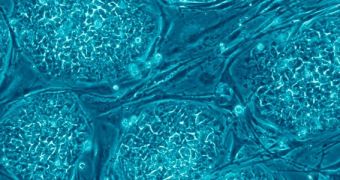Two scientific papers detailing an easy method to obtain embryonic-like stem cells from single blood cells has been proven false by a panel of experts from the Institute of Physical and Chemical Research (RIKEN), in Japan. The studies were published this January in the top scientific journal Nature by a team of Japanese and US researchers, led by RIKEN expert Haruka Obokata.
As soon as the works appeared, many voices in the international scientific community have expressed concerns about the authenticity of the scientific data, suggesting that several errors may plague the two texts. Amidst these allegations, RIKEN decided to set up an internal panel of six experts to investigate the scandal. Its conclusions have been published on Tuesday, April 1, Nature News reports.
The investigations team uncovered a total of 6 errors in the two papers. The experts determined that 4 of these inconsistencies slipped past innocently, as the authors showed no intention of deceit. The other two errors were deemed intentional, so the panel concluded that the team is guilty of manufacturing data and scientific misconduct in its breakthrough study.
Obokata, who holds an appointment with the RIKEN Centers for Developmental Biology, denies these allegations, and says that the research features no fraud or fraud attempt. She maintains that any and all errors that may have crept up in the published drafts of the two studies were innocent and unintentional. Obokata has already announced her intentions to appeal the panel's decision in a statement to Reuters.
The chairman of the RIKEN committee, molecular biologist Shunsuke Ishii, said during a press conference held yesterday in Tokyo that Obokata is guilty of using an image from her own dissertation thesis in the new papers, to demonstrate an unrelated experiment. This was first signaled by scientists in the international community who were unable to replicate the Japan/US team's experiments.
“Actions like this completely destroy data credibility. There is no doubt that she was fully aware of this danger. We've therefore concluded this was an act of research misconduct involving fabrication," Ishii told media representatives present at the conference, as quoted by NPR.
Representatives from Nature, one of the world's top-rated scientific publications out there today, said recently that they were still investigating the allegations, but have not yet reached a conclusion. At this time, none of the two papers has been redacted or otherwise amended. Scientists around the world still have no idea if the new method of producing stem cells actually works.
Obokata and her team argues in the January papers that embryonic-like stem cells can be obtained easily by subjecting regular blood cells to stressful stimuli, such as mechanical pressure or exposure to low concentrations of acid. If the work were to be proven true, it would represent a significant breakthrough in obtaining the most powerful types of cells in the world.

 14 DAY TRIAL //
14 DAY TRIAL //